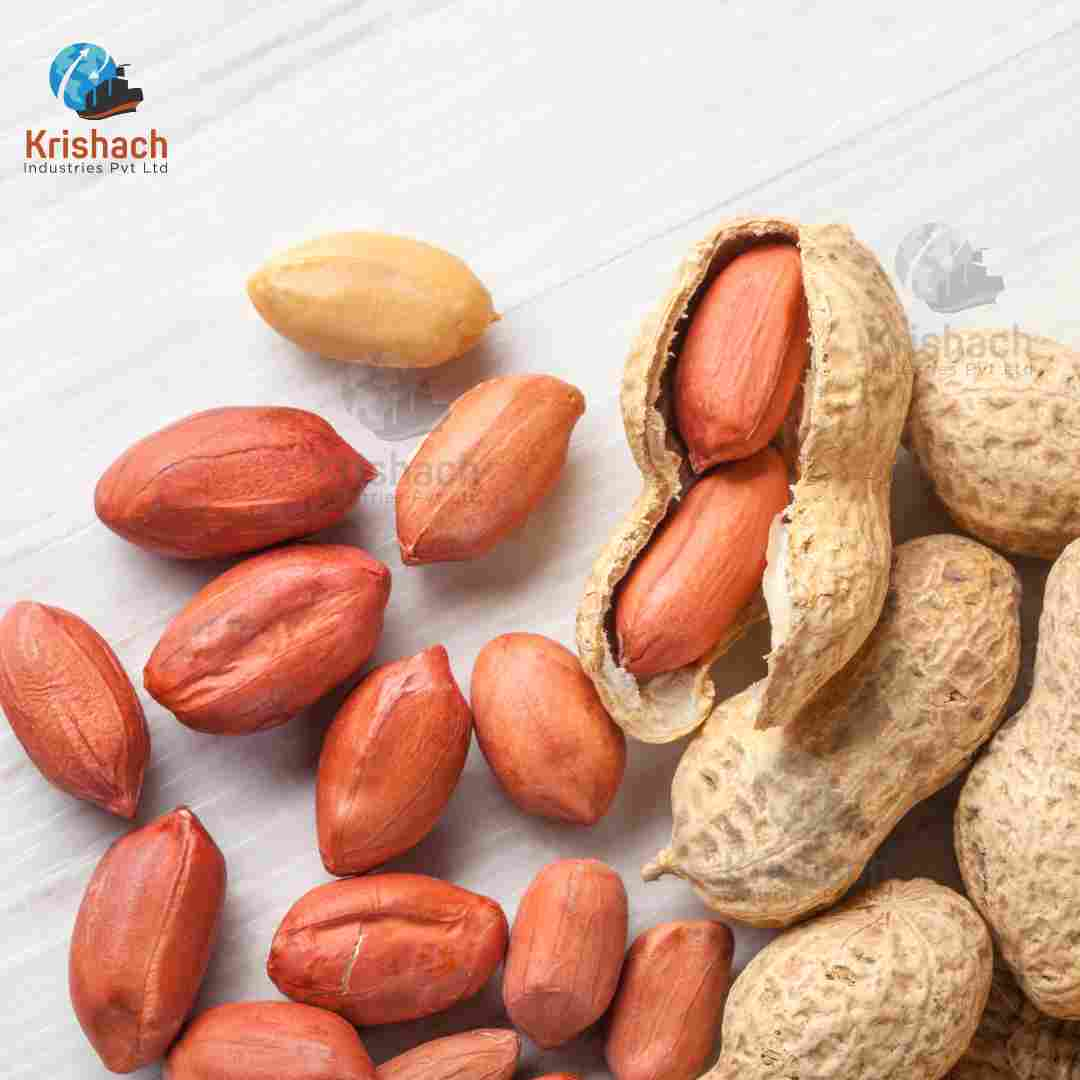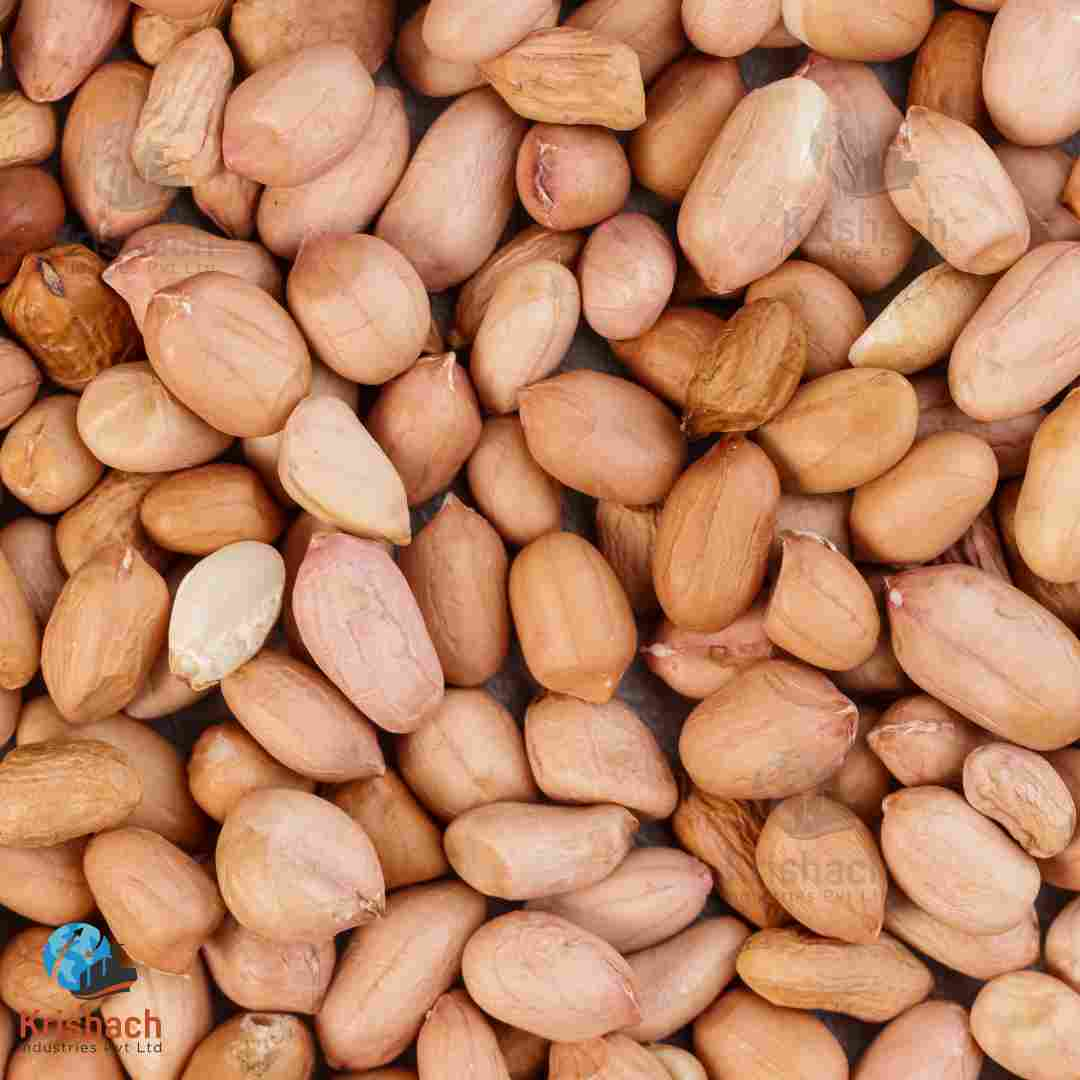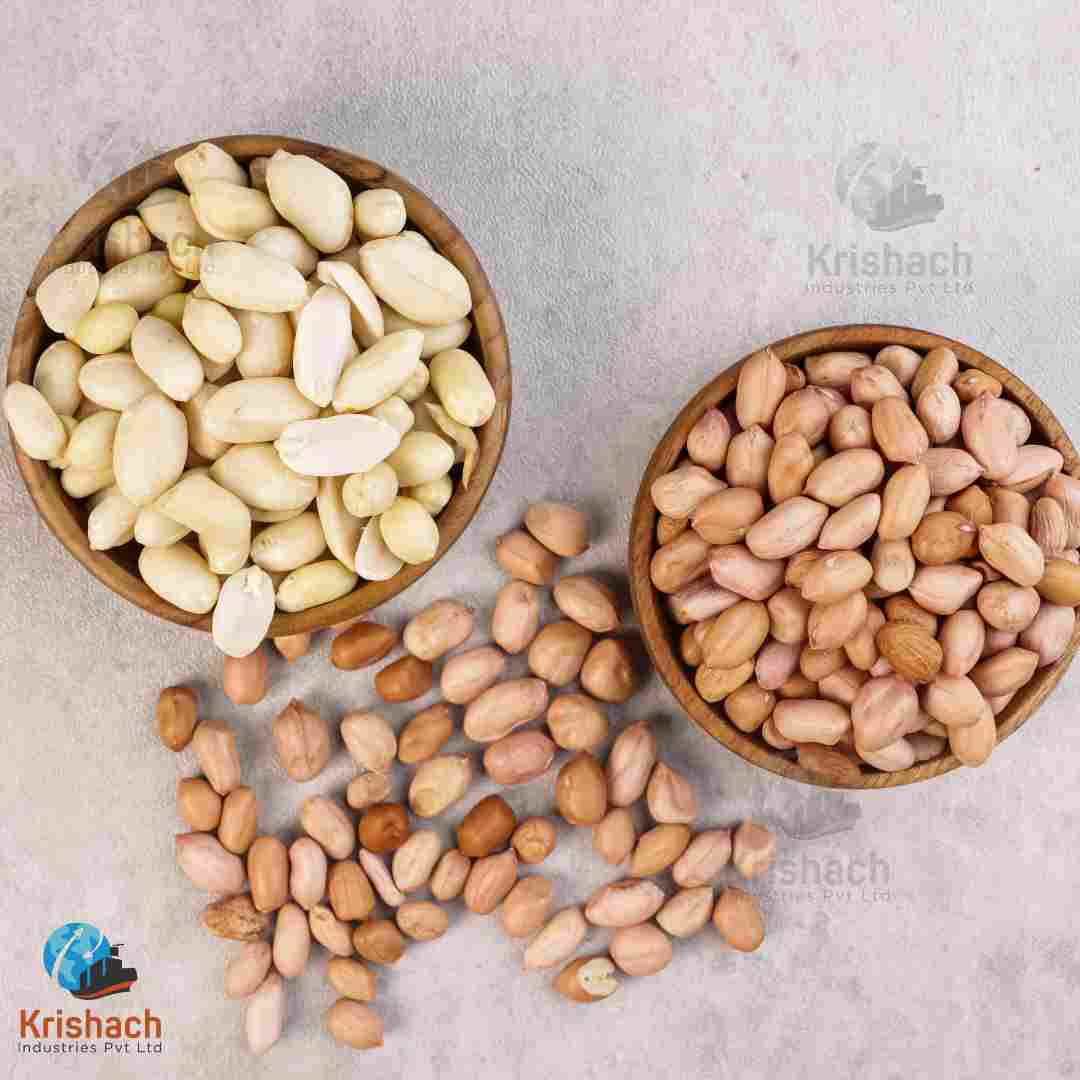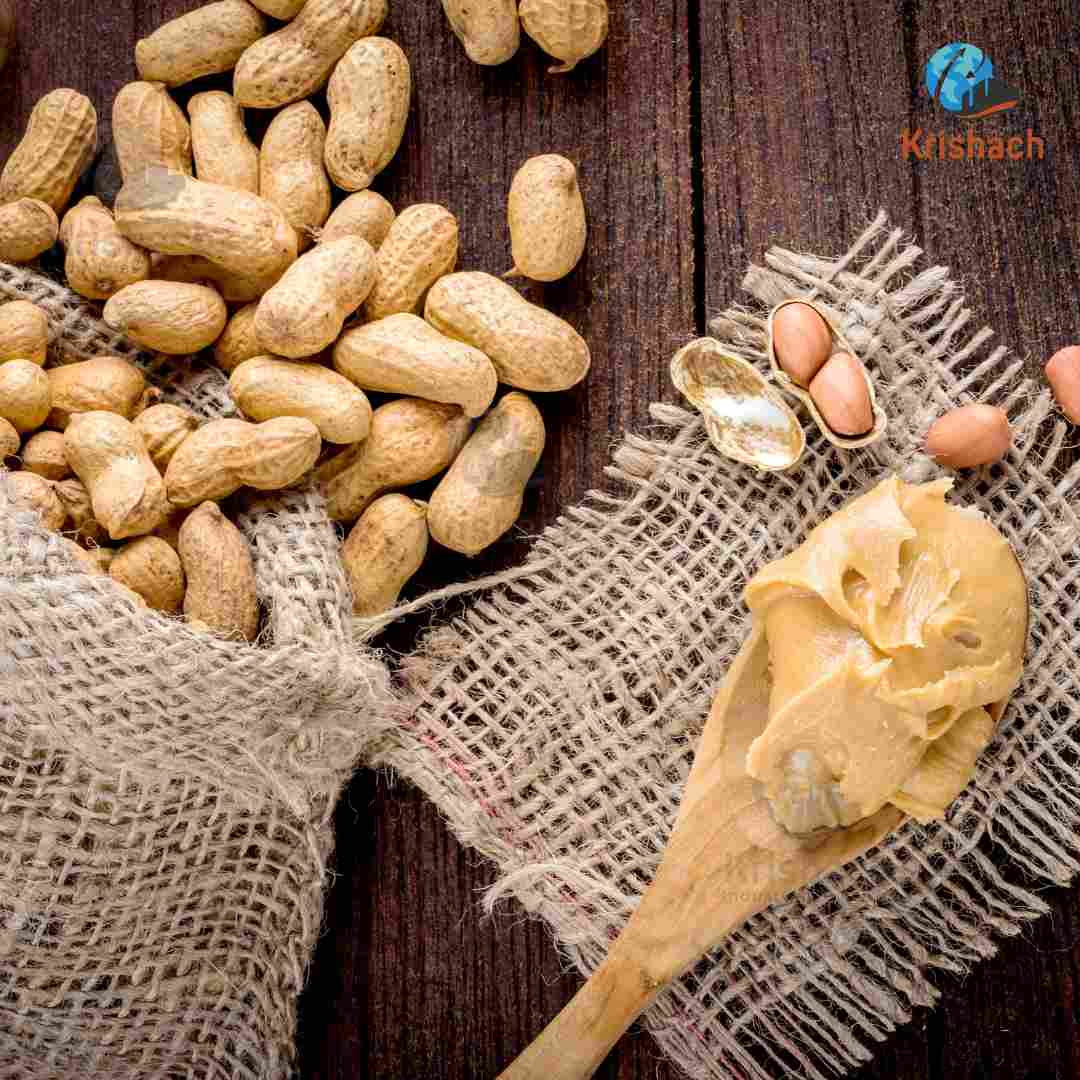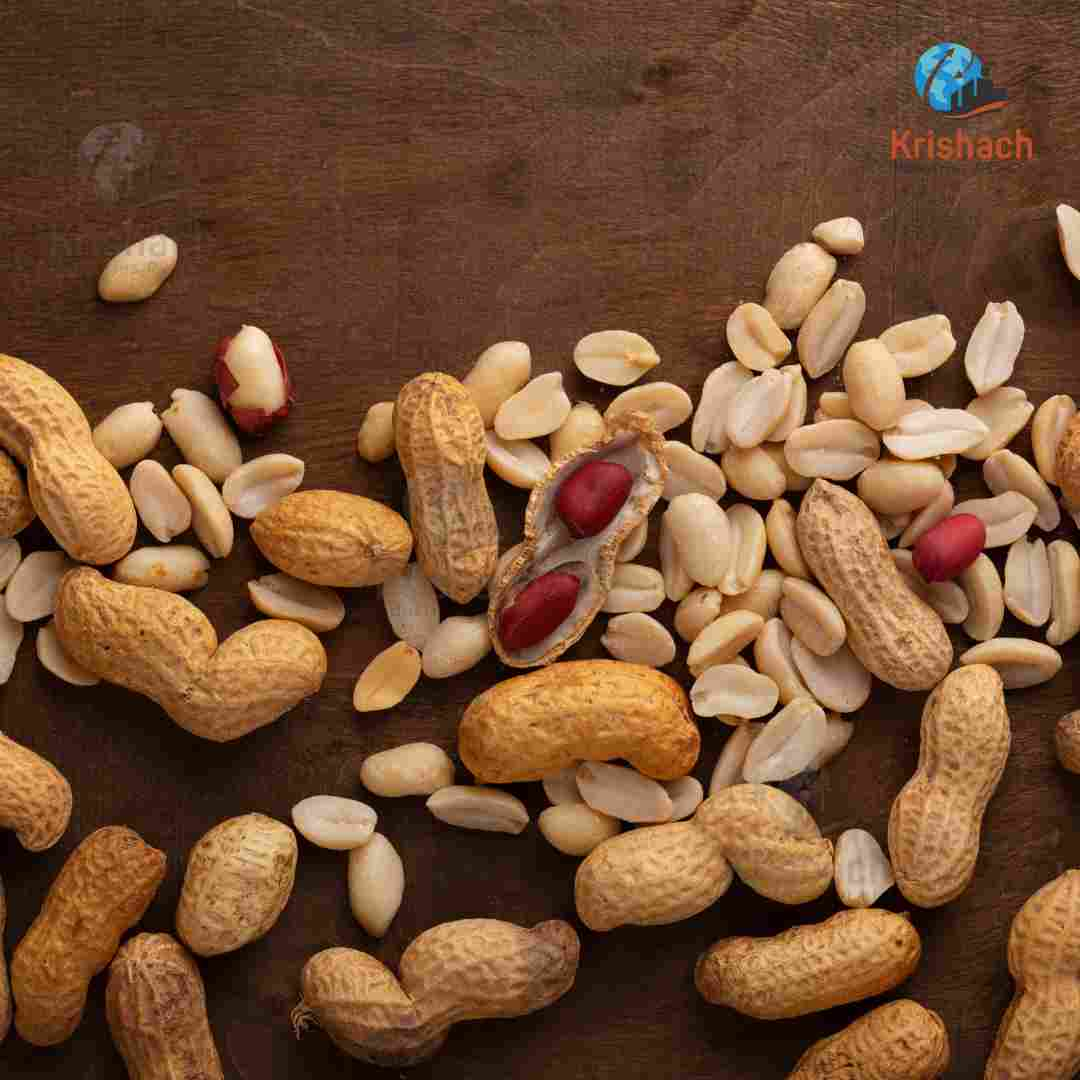Peanuts, scientifically known as Arachis hypogaea, are a legume widely cultivated for their edible seeds. Despite their common association with nuts, peanuts are technically legumes, related to beans and lentils. They are grown primarily in tropical and subtropical regions and are a popular snack, cooking ingredient, and source of oil.
Key Characteristics of Peanuts:
Appearance:
Shell: Peanuts grow in a brittle, woody pod or shell that typically contains two seeds, though some varieties may contain more. The shell is tan or light brown, with a rough, veined texture.
Seeds: The seeds, commonly referred to as peanuts, are oval or oblong in shape, covered by a thin, papery skin that can be reddish-brown, purple, or light pink, depending on the variety.
Size: The peanut seeds typically range from 1 to 2 cm in length, with the size varying based on the variety and growing conditions.
Texture:
Shell: The outer shell is dry and hard, but easy to crack open.
Seeds: The seeds inside are firm and crunchy when raw, becoming creamier when roasted or processed.
Color: The peanut seeds themselves are off-white or light cream in color once their thin skin is removed.
Aroma: Raw peanuts have a mild, earthy aroma, which becomes richer and more nutty when roasted.
Flavor:
Raw peanuts have a mild, slightly sweet, and earthy flavor. Roasting enhances their taste, giving them a rich, savory, and nutty flavor. They can also be salted, spiced, or sweetened depending on preparation.
Specification:
Uses:
Culinary: Peanuts are consumed in various forms: raw, roasted, salted, or boiled. They are a staple in many dishes across different cuisines, including peanut butter, peanut sauces, and snacks. They are also used to produce peanut oil, which is valued for cooking due to its mild flavor and high smoke point.
Nutritional: Peanuts are a rich source of protein, healthy fats (especially monounsaturated fats), fiber, and various essential vitamins and minerals such as vitamin E, niacin, folate, magnesium, and phosphorus. They are also a good source of antioxidants, particularly resveratrol.
Nutritional Value:Peanuts are nutrient-dense, providing a high amount of protein and energy. They are also packed with essential micronutrients like vitamin B3 (niacin), vitamin E, and magnesium, as well as heart-healthy fats that make them a popular choice in both snacks and health-conscious diets.
Benefits:
Peanuts are rich in protein, healthy fats, fiber, vitamins, and minerals. They provide numerous health benefits, including supporting heart health, promoting weight loss, and reducing the risk of certain diseases.
Cultivate Seasons for India:
Peanuts are predominantly cultivated during the kharif season in India, with sowing typically done in June-July and harvesting in October-November.
Our Services
Reliable Sourcing:
Reliable sourcing of peanuts in India begins by selecting suppliers from regions renowned for peanut cultivation, such as Gujarat, Andhra Pradesh, Tamil Nadu, and Maharashtra. Gujarat is known for producing the majority of India’s high-quality peanuts. These regions offer optimal growing conditions with sandy loam soil and favorable climates, leading to peanuts with excellent flavor, texture, and oil content. It is important to work with suppliers certified in Good Agricultural Practices (GAP) and organic farming methods to ensure the peanuts are grown sustainably, without synthetic pesticides or fertilizers. Collaborating with trusted suppliers who adhere to quality controls and ethical sourcing ensures a steady supply of premium-grade peanuts. Traceability is also essential, allowing buyers to track the peanuts from farm to market and ensuring transparency in the sourcing process.
Premium Quality Assurance:
Premium quality assurance for peanuts in India involves rigorous testing and inspection throughout the production process. This includes ensuring that peanuts are free from contaminants such as aflatoxins, heavy metals, and pesticides, which can affect safety and quality. Peanuts should be checked for uniformity in size and appearance, with well-filled pods and no damage or mold. Moisture content is crucial, with optimal levels between 6-8% to prevent spoilage. Peanuts are also tested for oil content, as higher oil content is indicative of superior quality. Proper drying and storage methods, such as sun-drying or using mechanical dryers, help maintain the freshness and flavor of the peanuts. The peanuts are cleaned and sorted to remove impurities, and packaged in air-tight, food-grade materials to preserve their quality during transport and storage. Certifications such as ISO, HACCP, and FSSAI further ensure that Indian peanuts meet international food safety standards and premium quality benchmarks.
Process:
The processing of peanuts in India begins with harvesting when the plants reach full maturity, usually 120-150 days after sowing. After harvesting, the peanuts are carefully uprooted and left to dry in the sun to reduce moisture content. Once dried, the peanuts are separated from the pods through threshing, and then cleaned to remove soil, stones, and other impurities. Depending on the intended use (raw, roasted, or processed), the peanuts are graded based on size and quality. Quality tests are conducted for moisture content, oil content, and contamination to ensure safety and consistency. For premium peanuts, shelling is often done mechanically to maintain uniformity and minimize damage. The shelled peanuts are then sorted, cleaned, and packaged in moisture-proof, food-grade packaging to retain freshness and prevent spoilage. Proper labeling and batch tracking ensure traceability, and the peanuts are stored in cool, dry conditions to maintain their natural flavor, crunch, and health benefits until they reach the market.
Packaging, Shipping & Delivery
Packaging:
Bags and Pouches:
For Peanuts, high-quality food-grade materials such as laminated multi-layer pouches (made of materials like PET, PE, BOPP, and Aluminum foil) are used. These bags are moisture-proof and help retain the freshness, flavor, and aroma of the spices. Zip-lock pouches, stand-up pouches, and resealable bags are also popular for smaller quantities.
Polypropylene (PP) Woven Bags:
These are the most common types of bags used for packaging large quantities (25 kg and 40 kg) of Peanuts. They are made of woven polypropylene material, which is strong, lightweight, and durable, providing excellent resistance to tearing and damage during handling and transport.
Laminated Bags:
For additional protection against moisture and humidity, PP woven bags can be laminated with a layer of plastic film. This lamination creates a barrier against moisture, ensuring the spices stay dry and fresh during transportation and storage.
Multi-Wall Paper Bags:
These bags consist of several layers of kraft paper, which provide strength and are often lined with a plastic or polyethylene layer to offer protection against moisture and humidity. They are environmentally friendly and widely used in many markets for exporting food products.
Vacuum-Sealed Packaging:
This type of packaging removes air from the package before sealing, which helps prevent oxidation and moisture build-up, preserving the quality and extending the shelf life of the spices.
Paper or Carton Boxes:
After the packaging, the smaller bags or pouches are placed in corrugated cardboard cartons or paper boxes. These cartons are sturdy, stackable, and protect the contents from physical damage during handling and transportation.
Palletization and Wrapping:
Cartons or sacks are often stacked on wooden or plastic pallets and wrapped with stretch film or shrink wrap. This provides stability, reduces the risk of damage during transport, and makes handling more efficient.
Export Documentation:
Handle all necessary export documentation, including phytosanitary certificates, certificates of origin, and any specific certifications required by the importing country.
Efficient Shipping:
Partner with reliable freight forwarders and logistics companies to ensure timely and safe delivery of goods. Offer multiple shipping options (air, sea, or land) based on customer preferences.




